Last Updated on July 10, 2022 by
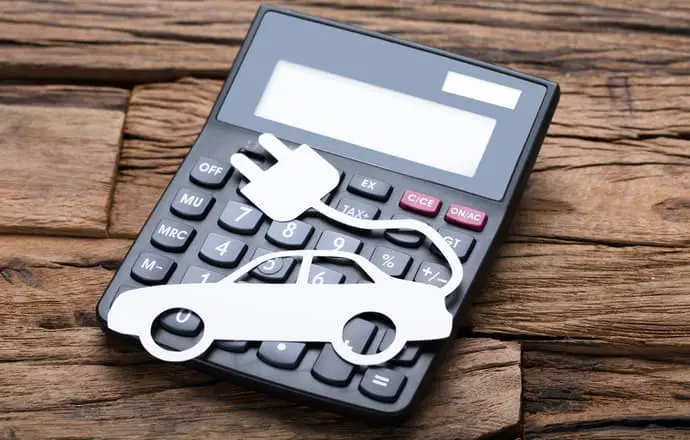
As things currently stand, an electric vehicle (EV) costs more to buy than its diesel or petrol equivalent. But what about running costs? Recent research suggests that even though the up-front purchase costs are higher, over an average vehicle lifetime an EV is now marginally cheaper than a conventional petrol or diesel car. This indicates that that running costs are significantly lower, making a higher cost of purchase more justifiable.
However, running costs do vary and need to be considered before deciding which vehicle to buy.
This article looks at the main costs of running a vehicle, how they compare with conventional petrol or diesel vehicles, and how, and by how much, they might vary.
EV Running Cost Considerations
Fuel
“Fuel” in this case of course means electricity. To compare running costs with a petrol or diesel equivalent, this should be done using cost per mile. Charging a car battery up to full power does not equate to filling up a tank of fuel, because the range will be different, typically lower. So cost per mile is a better comparison. This does vary according to driving style – spending a lot of time at the upper end of the speed limit will result in lower mileage, so there’s a cost incentive to slowing down. But largely it depends on how the vehicle is charged.
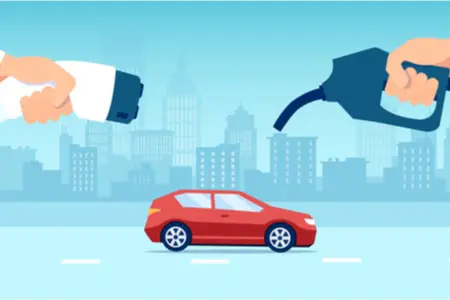
At Home
The cheapest way to charge regularly is at home, for those with off-street parking who can install and connect a compatible EV charger to the home supply. The electricity used will appear on the household bill. The charge depends on what tariff you are on, which in turn depends on who your electricity supplier is, your electricity usage generally, and so on. Some research in advance is worthwhile, because a number of suppliers now offer a customised tariff for EV owners. A deal incorporating a lower tariff for off-peak charging is often attractive because the car can be charged overnight when the rate is lower. This kind of Economy 7 type tariff could save considerable sums. For example, you might pay 5p per kilowatt hour versus the average of 14p. The mileage does also vary depending on the make and model of the car.
Many cars will achieve 3p to 5p per mile based on standard home electricity tariffs. With a favourable off-peak or EV-optimised electricity tariff this could drop as low as 2p per mile. This compares to 13p a mile for a petrol engine and 9.5p for diesel.
Working this out per annum, a mileage of 5,000 miles on the cheapest rate would cost £100, compared with £650 for a petrol engine. The savings for 10,000 miles per year would be £200 versus £1,300, a saving of £1,100. For 20,000 miles per year, it’s £400 versus £2,600, a whopping saving of £2,200 per year! But bear in mind that a high mileage will probably involve longer journeys with charging away from home, which costs more (see below).

Away From Home
If you can’t charge your vehicle at home, you’ll need to locate a charger that’s nearby, perhaps in the street or in a car park or at work. These are increasing in number as suppliers and local authorities invest in EV infrastructure, incentivised by government. They tend to be “fast chargers” so will charge more quickly than at home but with a slightly more expensive fee. According to DriveElectric, you can expect to pay around £1.30 – £3.90 per hour for fast (7-22kW) charging points. This means that a full charge might be £7.20 versus £5.60 at home on a standard rate. So it might be 30% more expensive, meaning a fuel bill of perhaps £450 per annum versus £350 if you were charging at home (roughly based on an annual mileage of 10,000). But this is still a substantial saving on either petrol or diesel.
Another possible bonus, though, is that some of these charge point are free! For example, employers are being incentivised to provide charging points for employees, so it may be possible to commute and top up for free during the working day. You might find some supermarkets or leisure centres providing free charge points, although the majority of points do charge. You generally need to be signed up to a scheme to use these charge points, and Zap-Map is a great place to research the various networks available, which vary depending on where you are in the country. There might also be savings available that tie in with your home tariff.
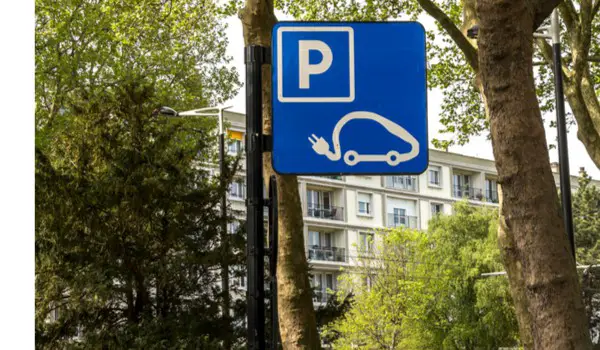
If you’re doing a long journey you may have to make use of the rapid charge points that are found at motorway service stations and similar places. These are increasing in number all the time and have the convenience of, as the name suggests, charging the battery very quickly. A 30-minute charge should give you 100 miles, but check this out before purchasing a vehicle, as it varies and not all cars are rapid-charge enabled. Costs for this range from around 7p to 9p per mile.
In a scenario where you’re doing 20,000 miles a year, have an average tariff at home and use a rapid charging point for 35% of your mileage, you could be spending close to £1,000 per year on electricity. This compares with £2,600 on petrol or £1,900 on diesel. So even when paying more than the minimum for electricity, there are big savings to be made by going electric.
Servicing
Servicing an electric car often costs less than a conventional vehicle. This is because it doesn’t have a combustion engine, so all the things that could go wrong with one don’t apply. Issues with the radiator, pistons, spark plugs, fuel pump,
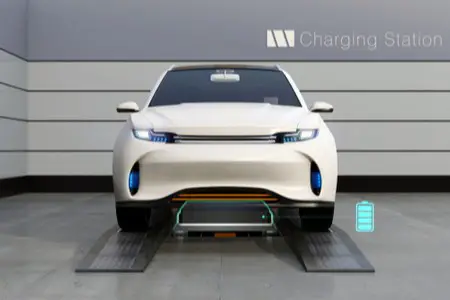
Service intervals are worth looking at as they tend to be longer on EVs, so fewer services are needed over time, particularly with new cars. Manufacturers’ maintenance fees also ought to be less. For example the charge for a three-year maintenance package on a BMWi3 is £322 compared to £528 for a BMW 318i.
The battery is often a cause for concern, as a replacement could cost £5,000 making it the most expensive single item under the bonnet. However, they are often under guarantee on a new car for 5-10 years, and many last longer than that. Total battery failure is rare.
Against all this, however, is the fact that an EV has to be serviced at a place with the know-how to handle a fully electric vehicle. Most independent garages don’t yet have this. One website to check is Hevra, a network of independent garages with EV servicing capability. The number currently listed in England is 78 (subject to change), a fraction of the total number of independent garages, but most areas have a few even if you have to travel further to get to one. A new vehicle will offer some level of warranty and a maintenance package with a registered dealer covering the first few years, so this issue is more for drivers of older or second hand vehicles.
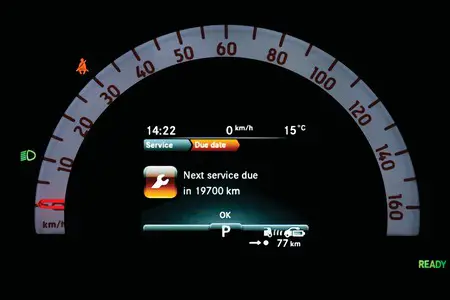
An EV still needs MOTs just as frequently as any other type of vehicle. An MOT will probably cost the same for an EV as for any other type of vehicle, despite the fact that it doesn’t require the same range of tests as a conventional vehicle. However, an EV is less likely to need replacement parts as a result of the MOT.
Leasing
One way of ensuring the availability of qualified servicing is to look at leasing options. Leasing an EV has the advantage that you will generally be driving an up-to-date car and therefore taking advantage of the frequent technological improvements that the sector is undergoing, such as better range and faster charge times.
There are two main types of leasing arrangement, personal contract hire (PCH) and personal contract purchase (PCP). The main difference is that with PCP the monthly fee is based on the value of the vehicle, and you have the option of buying the car outright at the end of the period. This may or may not be attractive depending on depreciation and technological advances, which might render a car that’s a only few years old behind the curve. The difference in monthly fees on a PCH contract are very small between an electric and a conventional vehicle. The monthly fee varies depending on annual mileage, length of contract and model of car. There may also be sweeteners such as credits for free mileage.
Insurance
Insurance is typically more expensive for an EV. This may change as more EVs spend longer on the road and their reliability can be proven. Premiums are of course influenced by a wide variety of factors such as age of driver, mileage, previous convictions and home address. It might be that some insurance companies are starting to see EV drivers as relatively “safe” compared with drivers generally, and EVs are less likely to be stolen, which would contribute to premiums coming down.
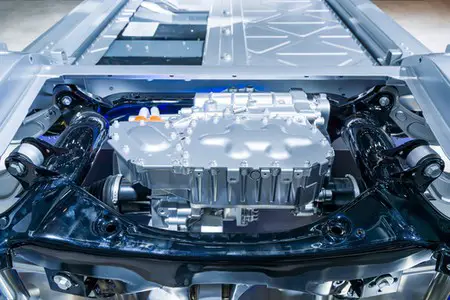
However, the limited number of mechanics able to repair and service EVs makes repairs more expensive. Some insurers assume that even after a minor collision the battery needs to be replaced (to avoid a possible fire risk), which will also keep premiums higher. But not all insurers will take the same approach, and not all manufacturers require battery replacement in the same circumstances.
Each insurance quote is different so direct comparisons are difficult, but some providers are quoting examples which suggest that premiums aren’t necessarily higher than for a petrol or diesel equivalent.
Breakdown Cover
Breakdown cover looks to be comparable for electric and conventional vehicles. The AA covers electric cars as standard. The RAC was the first roadside assistance service to carry mobile battery rechargers, so are clearly set up to serve EV drivers. Companies such as Breakdown Assist is backed by E-Zoomed, a website promoting EV information and accessories. It’s worth double-checking that your breakdown cover includes electric cars, as not all EVs can be towed and may have to be transported with a flatbed truck should the worst happen.

Road Tax / Congestion Charge / Parking Costs
Good news in this area: there is no road tax for electric vehicles (subject to change), unless you have purchased a car worth £40,000 or more in which case you only pay for five years – this is a secondary tax tier for high-value vehicles regardless of fuel type. Standard road tax for one year is currently £150 (subject to change), so you will save that as a minimum. In the first year the tax is dependent on emissions, so the saving could be higher.
The London Congestion Charge is also waived for zero emissions vehicles. This is currently £15 (subject to change) a day so savings would be considerable for anyone regularly driving into central London.

Many local councils also offer discounts on parking charges to incentivise EV use. This could cover residential or business permits and also on-street parking charges. Examples are Brighton and Hove, London boroughs including Hammersmith and Fulham and Westminster, and York. A 50% discount or free permit could save a considerable sum over the course of a year.
All of this is subject to the policies of the various authorities, which may change. However, the government is currently incentivising EV use in order to meet its target of ceasing all sales of non zero-emissions-capable vehicles by 2030, so the favourable climate is likely to remain for the time being.
Depreciation
If you buy a new electric car, how much could you sell it for in five or ten years? The amount by which the value of the vehicle decreases over time is a running cost; if you can get a good price second hand, it has cost less over time to run. Depreciation has a direct influence on the cost of a purchase-related leasing deal (PCP), because the monthly payments are based on what the car will be worth at the end of the leasing period.
Depreciation on EVs used to be high because of the limited second hand market. However as the sector has grown second hand sales have become a lot more buoyant, and depreciation is now seen as comparable with many conventional makes. The proven performance and reliability of EVs is also making them more attractive as used cars, alongside the declining popularity of diesel models. Values will vary by make and model, though, so it’s worth researching used car values prior to purchase.

Final Summary
Here’s a rough summary of how running costs compare across all the areas above:
- Fuel – regardless of how you fill up, it’s likely you’ll save at least £500 a year depending on mileage, and possibly considerably more.
- Servicing – on a new car, servicing costs are less, giving an approximate saving of £60-70 per year, assuming all parts are under warranty whether conventional or electric. On an older or used car it’s hard to judge, as the savings on parts might be outweighed by the lack of independent garages. Assume no difference overall.
- Leasing – PCH deals can be just as favourable as for a conventional car, and as depreciation lessens this will feed into PCP deals as well. Assume no difference.
- Breakdown cover for EVs seems to be offered as standard. Assume no difference.
- Insurance is generally more expensive, but the difference is getting smaller. Premiums might be up to £100 a year more than for a conventional equivalent.
- Road tax – there will be a saving of at least £150 a year, and possibly more in the first year.
- Congestion charge – for someone driving into London once a week the annual saving would be £750 a year (approx).
- Parking charges – these vary by region and whether you’re in a permit area, but a 50% discount on an annual permit charge is likely to be upwards of £50.
In summary, an electric vehicle should offer savings of at least £600-£700 (approx) per annum on a conventional equivalent, and possibly considerably more. Of course this needs to be balanced against cost of purchase and issues such as range. But with the right kind of research and given the direction the market is developing, EVs offer great potential to save money on your motoring.

Disclaimer: Please note this is not financial advice or recommendations, it is merely general information on the potential running costs of an electric vehicle, you should always speak with a professional financial advisor if you want expert advice or recommendations.

